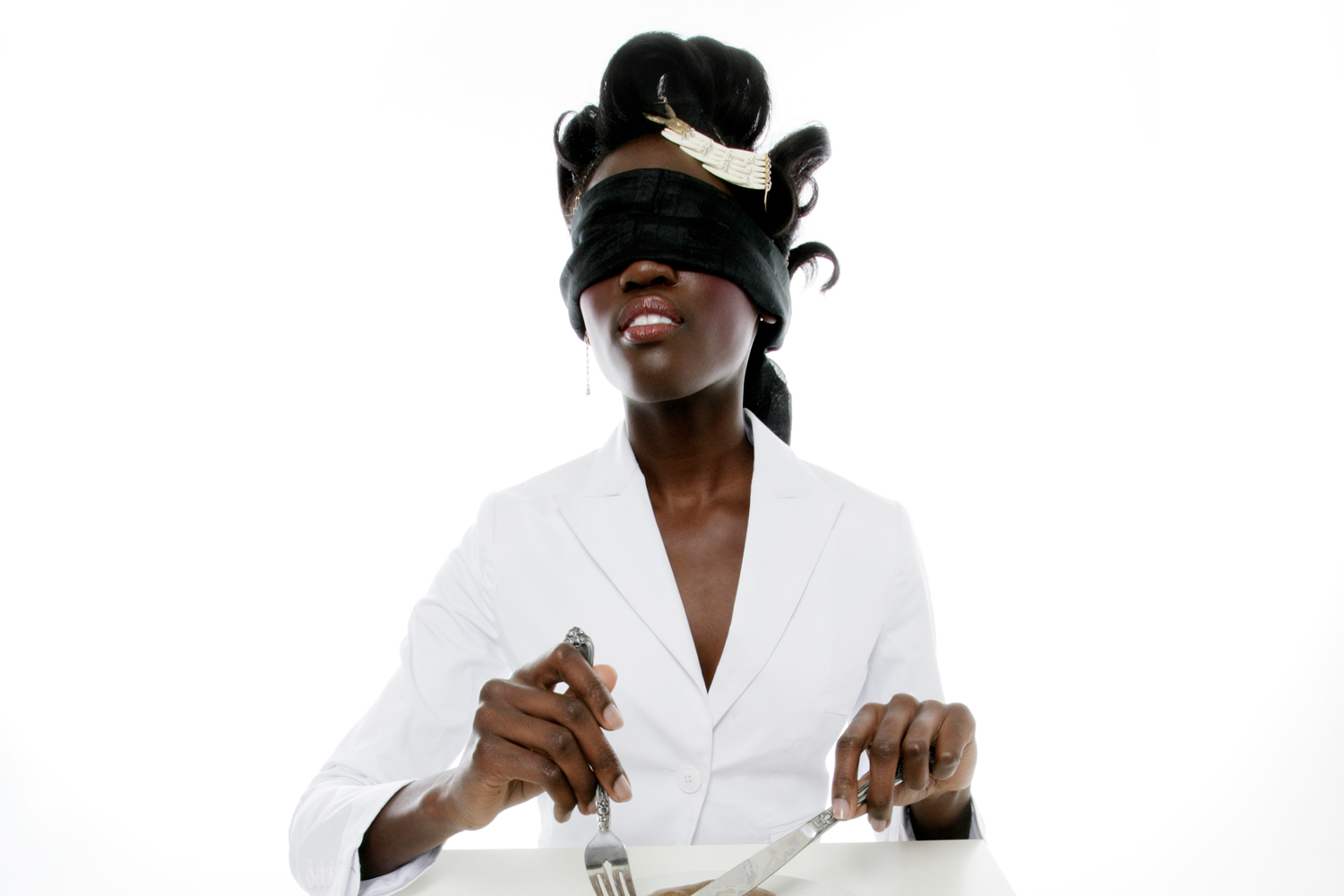Scientists Say: Eat In The Dark If You Want To Lose Weight
We Say: WHAT!?!

Celebrity news, beauty, fashion advice, and fascinating features, delivered straight to your inbox!
You are now subscribed
Your newsletter sign-up was successful
We Say: WHAT!?!
Here's an idea: next time you have a plate of food in front of you, tie on a blindfold before you tuck in, don a Sia-style eye-obscuring wig or just hit the lights.
You might be surprised what happens. If you’re anything like the group of volunteers who participated in an experiment recently conducted by the University of Konstanz in Germany then you will eat a lot less in the dark.
The Telegraph reports that this brain-tricking method works because you eat what you need until you are full and then you stop. You don’t eat for pleasure.
Which sounds a bit miserable, but less miserable than cutting out carbs and sugar and bad fats from your diet entirely…
The experiment’s participants were all given big bowls of ice cream, some were wearing modified ski goggles that blocked out the light, others weren’t. Then they were all told to eat as much as they wanted.
The scientists found that people who couldn’t see what they were eating consumed 9% fewer calories and didn’t rate the ice cream as highly in terms of tastiness.
Celebrity news, beauty, fashion advice, and fascinating features, delivered straight to your inbox!
The estimates of the blindfolded participants about how much they had eaten were also wildly inaccurate because they had no idea what was left on their plates. They believed they had eaten 88 per cent more than they actually had.
Lead author Dr Britta Renner said: “Visual deprivation caused a pronounced dissociation between actual and perceived intake.
“This may provide an unobtrusive and naturalistic means to change the experience of eating behaviour.
“These results might indicate that vision deprivation increases perceived intake because the estimation of the satiating potential of foods depends more on ‘real-time’ experience than on prior expectations.”
Basically, when you eat in the dark you eat what you need/want at that point in time – you don’t think ‘but last time I had ice cream I ate three scoops, not two. I can nail another one.’
The scientists also pointed out that eating it darkness prevents the ‘cephelic’ stage of digestion, which causes salivation and the release of gastric juices when food is seen – without this digestion stage food is literally harder to consume.
The fact of being in the dark also taps in to an innate fear-instinct. The whole time we’re munching away, unable to see what we’re putting in our mouths our brain is whirring and wondering if it’s all mouldy. Definitely an appetite killer.
The leading destination for fashion, beauty, shopping and finger-on-the-pulse views on the latest issues. Marie Claire's travel content helps you delight in discovering new destinations around the globe, offering a unique – and sometimes unchartered – travel experience. From new hotel openings to the destinations tipped to take over our travel calendars, this iconic name has it covered.